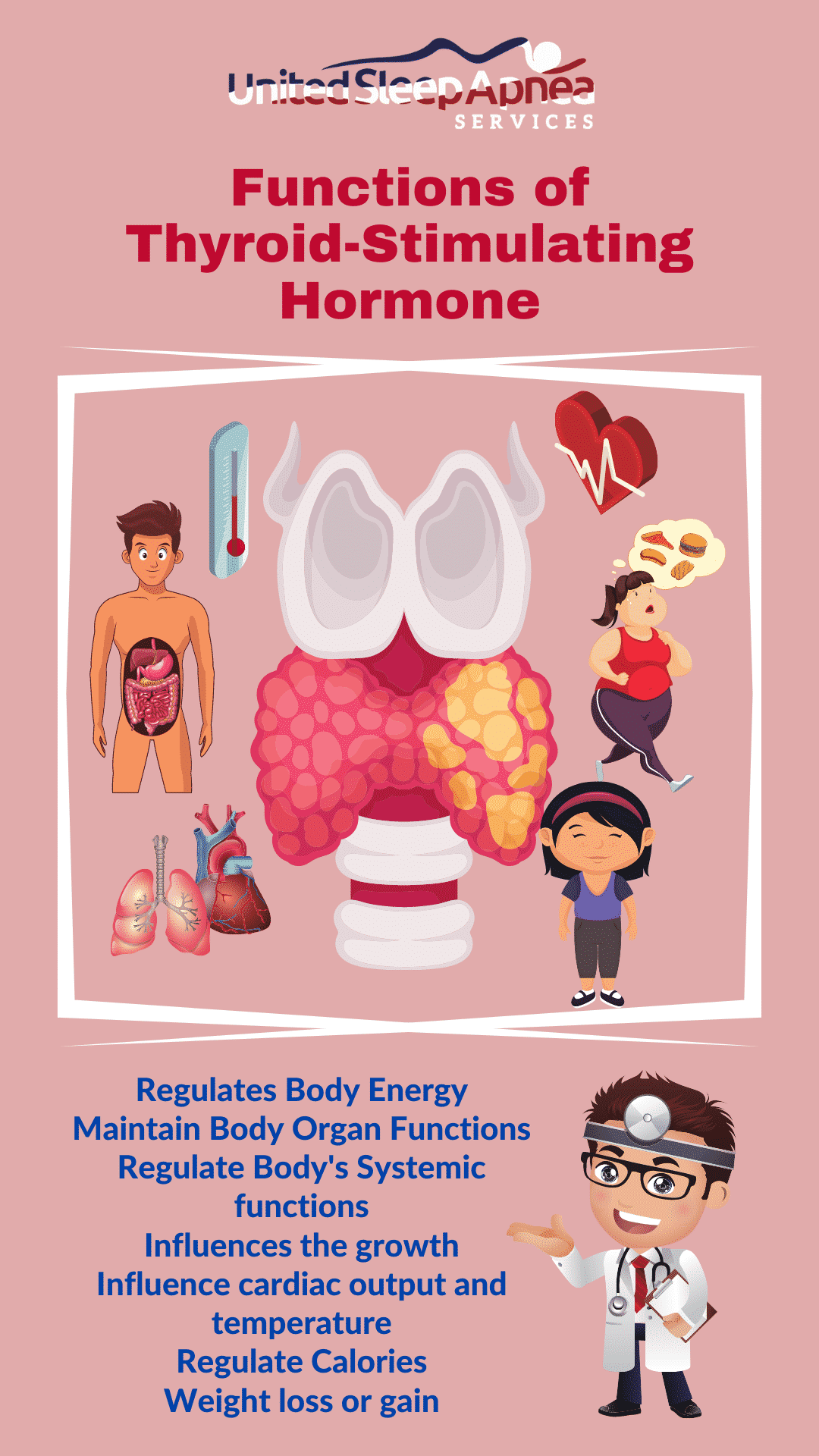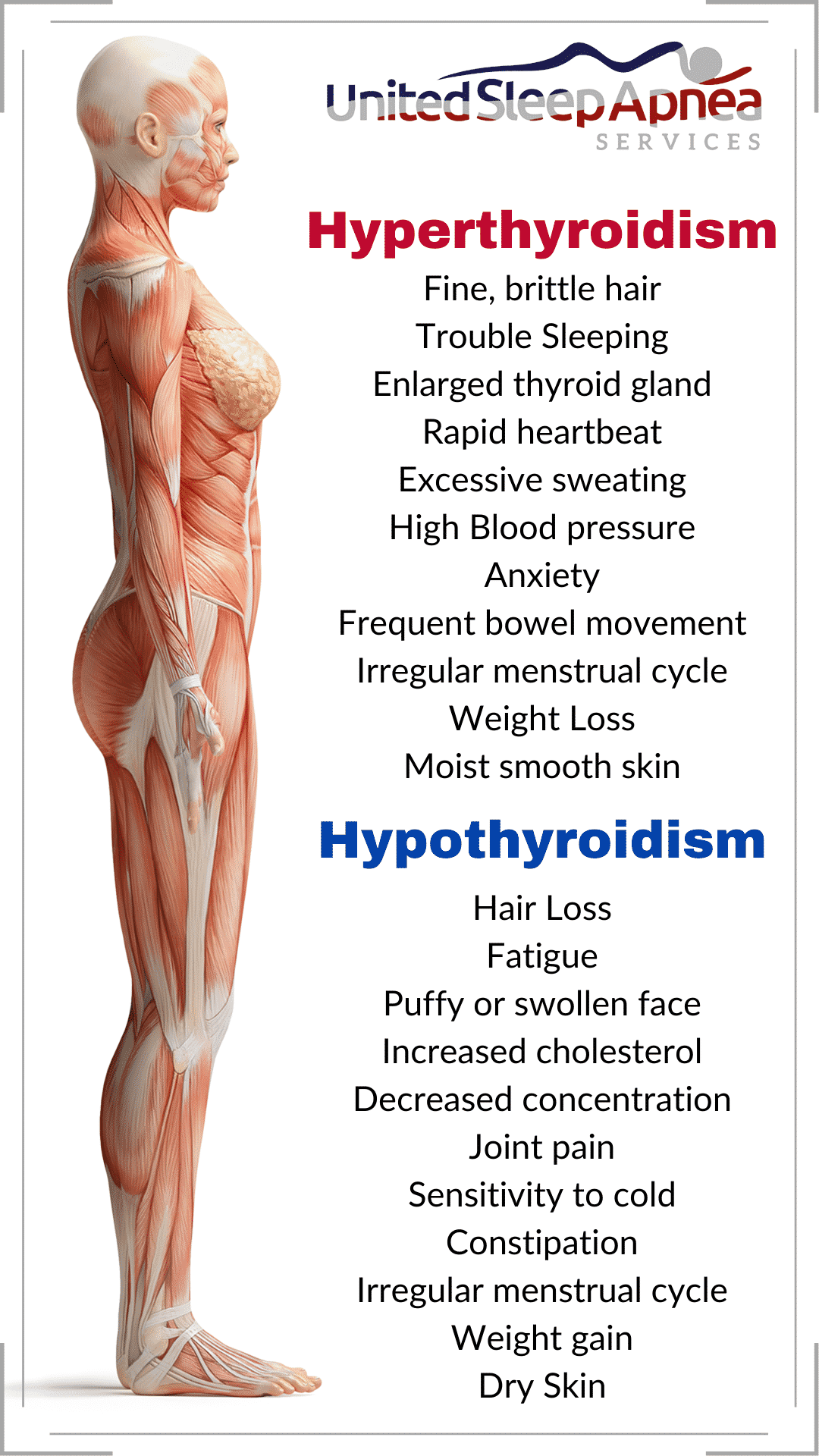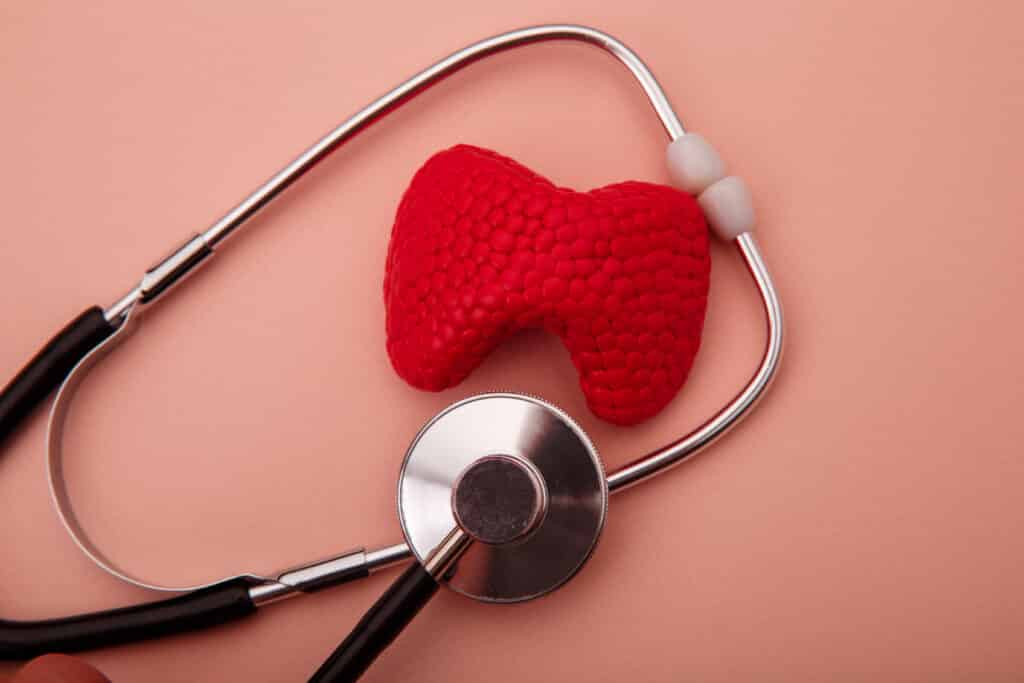Every one of you knew how a car engine works. Did you know about the human engine? Yes, there lies a car-like human engine inside your body, taking care of the most important functions. It’s none other than “Thyroid,” which produces the required energy to perform the respective cell functions.
Are you a Thyroid patient? Do not panic! COVID-19 has no proven effect on thyroid imbalances yet. However, a huge set of problems arise due to thyroid and thyroid-stimulating hormone imbalance in the bloodstream.
The small and butterfly-shaped gland, the thyroid gland, located at the base of the throat at the front, produces thyroxine (T4) and triiodothyronine (T3). The microscopic follicular cells of the thyroid produce and store some of the T4 and T3 within the cells. When TSH signals reach the thyroid, the follicular cells release the stored hormones for action. This storing and releasing process has been well studied in one of the research papers published in the StatPearls [Internet].
A piece of medical news released last year (2019) tables the estimates of TSH levels:
However, the normal range depends on individuals’ various factors like age, gender, and pregnancy (if females).


Then, do sleep disorders provoke endocrine disease? Maybe, yeah, but no!
The book “Endocrine Secrets” discusses this, kind of, a myth under the chapter “Sleep and Endocrinology.” In your human body, everything associates with one another. Hence, a sleep disorder may lead to worsening an endocrine problem and vice versa. For example, hypothyroidism may increase the risk of obstructive sleep apnea (OSA). OSA, in turn, can lead to Diabetes and Obesity, thereby affecting the body metabolisms.
Recent research published (2014) in the Medical Hypotheses studies how the hypothalamic-pituitary-thyroid axis affects sleep quality, and how sleep deprivation can, in turn, influence the thyroid or thyroid-stimulating hormone synthesis.
The research notifies that the Thyroid hormone activity steadily increases in individuals who suffer from sleep deprivation.
This happens due to the hypothalamic-pituitary-thyroid axis’s increased activity at initial phases that increase the release of thyroid-stimulating hormone by the pituitary gland. Subsequently, the sleep deprivation continues. However, the research also says that the increase in thyroid-stimulating hormone levels and thyroid levels may only be a secondary contributor to sleep deprivation.
Another group of researchers studied the effect of the sleep-wake cycle on the quality of sleep and sleep deprivation. The study evaluated the thyroid-stimulating hormone, T4, and T3 thyroid hormones concentrations in 12 healthy individuals between 23 hours and 1.30 hours, coupled with a 64-hour sleep deprivation intervention.
Similar to other research results, the study found that sleep-deprived individuals showed an increase in thyroid-stimulating and thyroid T3 and T4 hormone levels. The elevation of hormone levels due to sleep deprivation gained attention and paved the way to further research after this research publication.
A parent study to the above research analyzed the effect of 64-hour sleep deprivation on the thyrotropin (thyroid-stimulating) secretion waveform. This study published in the Journal of Clinical Endocrinology and Metabolism proves the significant association between sleep deprivation and the thyroid-stimulating waveform. The study found a significant change in the daily waveform, and the circadian waveform alteration increased with the increase in the absence of sleep.
These sleep apnea patients have chances of pausing their breaths for about 10 seconds or more. In some extreme special cases, the breathing pause can occur more than 30 times in an hour. Sometimes, this can make you stop breathing completely and lead to survival issues. Hypothyroidism, along with sleep apnea, can cause lethargy, weight gain, and daytime sleepiness.
A 2010 study published in the journal of Sleep research (Sleep Research Society) examined healthy individuals (five females and six males) for the effect of recurrent sleep deprivation on the thyroid levels in the bloodstream. In contrast to researchers’ expectations, they found reduced concentrations of the thyroid-stimulating hormones and free T4 thyroid concentrations among the female subjects. Hence, the influence of gender over the association of sleep deprivation and the thyroid hormones has to be studied in depth in the days to come.
Experts suggest that overcoming your sleep disorder or sleeping problem can spontaneously alter your body’s improper thyroid hormone levels and does not require any Thyroid supplements that has its list of side effects and consequences.
Are you a Thyroid patient? Do not panic! COVID-19 has no proven effect on thyroid imbalances yet. However, a huge set of problems arise due to thyroid and thyroid-stimulating hormone imbalance in the bloodstream.
Go ahead reading through the article to get to know what Thyroid has to do with your body, as well as gather insights on how sleep can affect the hormone levels.
Thyroid-Stimulating Hormone (TSH)
The anterior part of the tiny pituitary gland produces the thyroid-stimulating hormone, a type of glycoprotein that stimulates the thyroid gland to produce thyroid hormones (T4 and T3). The thyrotroph cells of the anterior pituitary produce the thyroid-stimulating hormone after the stimulus from the thyroid-releasing hormone secreted by the hypothalamus in the brain.The small and butterfly-shaped gland, the thyroid gland, located at the base of the throat at the front, produces thyroxine (T4) and triiodothyronine (T3). The microscopic follicular cells of the thyroid produce and store some of the T4 and T3 within the cells. When TSH signals reach the thyroid, the follicular cells release the stored hormones for action. This storing and releasing process has been well studied in one of the research papers published in the StatPearls [Internet].
Production & Regulation of TSH
The pituitary gland gets its signals from different means:- Direct stimulus from the levels of T4 in the blood circulated.
- The hypothalamus production of thyrotropin-releasing hormone (TRH). This successive network of signals for hormone production constitutes the hypothalamic-pituitary-thyroid axis (HPT axis), as it begins from the hypothalamus, passes to the pituitary, and then passes to the thyroid gland.
A piece of medical news released last year (2019) tables the estimates of TSH levels:
| Hyperthyroidism | 0 – 0.4 |
| Normal | 0.4 – 4 |
| Mild hypothyroidism | 4 – 10 |
| Hypothyroidism | 10 |
Functions of TSH and Thyroid Hormones
On a broader note, TSH and other thyroid hormones aid every body cell and organs to perform their respective functions. Thus, the thyroid’s functionality plays a major role in the human body.
- TSH acts as a modulator for the release of T4 (primarily) and T3 from thyroid follicular cells.
- The T4 and T3 hormones regulate how your body consumes and spends the energy that involves oxygen consumption and heat exertion.
- Thyroid-stimulating hormone and thyroid T4 and T3 hormones together influence the body functions and metabolisms of organs, namely the brain, liver, kidney, heart, and skin.
- The thyroid hormones activate glucose absorption, lipolysis, glycogenolysis, gluconeogenesis, as well as protein synthesis.
- The free T4 (FT4) and free T3 (FT3) hormones circulated in the blood, specifically regulates protein synthesis that, in turn, influences the growth, energy consumption, cardiac output, and temperature. Research published (2017) in the Encyclopedia of Endocrine Diseases has studied in-depth the thyroid functions. The FT4 and FT3 also signal the pituitary to release the TSH whenever required and maintain the thyroid homeostasis.
- The thyroid-stimulating hormone activates the TSH receptor (TSHR) to signal the thyroid follicular cells.
- The thyroid hormones regulate the rate at which the calories burn.
- The TSH and thyroid hormones affect weight loss or gain for individuals, depending on the circulating levels in the bloodstream.
- The heart pulse rate majorly depends on the thyroid hormones.
- All the thyroid hormones together regulate other essential functions of the body, including the rate of digestion, muscle contraction, and rate of cell death.
Wanted to know what other hormones play a vital role like Thyroid? Stay tuned with us on… We’re on Pinterest,Facebook, Instagram, and Twitter
Thyroid-related Diseases and Disorders
Detecting the circulating concentrations of thyroid hormones T3, T4, and TSH in the blood needs immense attention in diagnosing the category of thyroid disease. Thyroid diseases may arise due to primary or secondary causes.TSH-Secreting Pituitary Adenoma
Pituitary adenomas work like pituitary tumors that secrete an excessive amount of active thyroid-stimulating hormones. These adenomas not only secrete elevated levels of TSH but also found to affect the adjacent cells causing headaches and vision problems. Adverse conditions of these diseases may lead to hyperthyroidism and goiter.Grave’s Disease
One of the autoimmune diseases, Grave’s disease mostly affects females below the age of 40. These patients exhibit the presence of TSH like auto-antibodies called thyroid-stimulating antibodies (TSIs). These TSIs stimulate TSH receptors on thyroid follicular cells and induce higher secretion of T4 and T3, causing hyperthyroidism or a condition resulting in goiter.Hypothyroidism
When the thyroid gland releases lower levels of thyroid hormones, it results in hypothyroidism. The symptoms include weight gain, cold, hair loss, irregular menstrual cycle, dry skin, and constipation. Untreated hypothyroidism leads to Myxedema that may lead to fatal issues like heart failure and coma. Other rare symptoms include hoarseness, depression, increased cholesterol levels, and impaired memory.
Hyperthyroidism
When the thyroid gland releases higher levels of thyroid hormones, it results in hyperthyroidism. The symptoms include accelerated body functions and metabolisms, increased heart rate, weakness due to weight loss, and sleeping difficulties. Visual problems become a common symptom in most hyperthyroid patients.Goiter
Hyperthyroidism, coupled with iodine deficiency, leads to a visible enlargement of the thyroid gland called a goiter. This makes the patients difficult to breathe and swallow.Thyroiditis
Thyroiditis develops due to the development of any inflammation in the thyroid gland. It may have arisen because of any imbalance (hypo- or hyperthyroidism). The most common symptom is sore throat.How are Sleep and Thyroid linked?
Does endocrine disease provoke sleep disorders? Yeah! But no!Then, do sleep disorders provoke endocrine disease? Maybe, yeah, but no!
The book “Endocrine Secrets” discusses this, kind of, a myth under the chapter “Sleep and Endocrinology.” In your human body, everything associates with one another. Hence, a sleep disorder may lead to worsening an endocrine problem and vice versa. For example, hypothyroidism may increase the risk of obstructive sleep apnea (OSA). OSA, in turn, can lead to Diabetes and Obesity, thereby affecting the body metabolisms.
Empirical Evidence
The role of thyroid and thyroid-stimulating hormone in the sleep-wake cycle has been subjected to enormous research studies. But, the significant and direct association of these two has still opened up opportunities for further study.Recent research published (2014) in the Medical Hypotheses studies how the hypothalamic-pituitary-thyroid axis affects sleep quality, and how sleep deprivation can, in turn, influence the thyroid or thyroid-stimulating hormone synthesis.
The research notifies that the Thyroid hormone activity steadily increases in individuals who suffer from sleep deprivation.
This happens due to the hypothalamic-pituitary-thyroid axis’s increased activity at initial phases that increase the release of thyroid-stimulating hormone by the pituitary gland. Subsequently, the sleep deprivation continues. However, the research also says that the increase in thyroid-stimulating hormone levels and thyroid levels may only be a secondary contributor to sleep deprivation.
Another group of researchers studied the effect of the sleep-wake cycle on the quality of sleep and sleep deprivation. The study evaluated the thyroid-stimulating hormone, T4, and T3 thyroid hormones concentrations in 12 healthy individuals between 23 hours and 1.30 hours, coupled with a 64-hour sleep deprivation intervention.
Similar to other research results, the study found that sleep-deprived individuals showed an increase in thyroid-stimulating and thyroid T3 and T4 hormone levels. The elevation of hormone levels due to sleep deprivation gained attention and paved the way to further research after this research publication.
A parent study to the above research analyzed the effect of 64-hour sleep deprivation on the thyrotropin (thyroid-stimulating) secretion waveform. This study published in the Journal of Clinical Endocrinology and Metabolism proves the significant association between sleep deprivation and the thyroid-stimulating waveform. The study found a significant change in the daily waveform, and the circadian waveform alteration increased with the increase in the absence of sleep.
Can Thyroid Cause Sleep Problems?
A Harvard Health article says that a thyroid disorder (mostly hyperthyroidism) can stimulate other body systems, including the nervous system, making it hard for the individual to fall asleep. Hyperthyroid patients get night sweats regularly, which can lead to sleeplessness. On the other side, hypothyroidism causes excessive sleepiness.Sleep Apnea affecting Thyroid Hormone Levels
An article published by the Alaska Sleep Education Center (Alaska Sleep Clinic) mentions that when an individual has hypothyroidism (low levels of thyroid hormone), the individual has higher chances of difficulties in their upper airway breathing, especially during sleep. If this condition persists, this may lead to breathing-associated sleeping problems like Sleep Apnea.These sleep apnea patients have chances of pausing their breaths for about 10 seconds or more. In some extreme special cases, the breathing pause can occur more than 30 times in an hour. Sometimes, this can make you stop breathing completely and lead to survival issues. Hypothyroidism, along with sleep apnea, can cause lethargy, weight gain, and daytime sleepiness.
Hashimoto and Sleep Apnea
Patients with Hashimoto (a kind of Hypothyroidism) have higher chances of getting affected with obstructive sleep apnea through breath inhibition. Also, sleep apnea can be one of the several factors that cause Hashimoto’s.Obstructive Sleep Apnea and Thyroid Hormone Levels
A study published in the American Journal of Respiratory and Critical Care analyzed the association between Hypothyroidism and Obstructive Sleep Apnea (OSA). The study inferred that women under the age of 50, who already had hypothyroidism, showed a higher risk of developing OSA.Scope for Further Research
Though researchers have carried out studies to examine the relationship between sleep deprivation and thyroid-stimulating hormones, there lies a big room of opportunity to study the same concerning attributes like gender, age, and pregnancy situations.A 2010 study published in the journal of Sleep research (Sleep Research Society) examined healthy individuals (five females and six males) for the effect of recurrent sleep deprivation on the thyroid levels in the bloodstream. In contrast to researchers’ expectations, they found reduced concentrations of the thyroid-stimulating hormones and free T4 thyroid concentrations among the female subjects. Hence, the influence of gender over the association of sleep deprivation and the thyroid hormones has to be studied in depth in the days to come.
Conclusion
You might have heard from patients who suffer from thyroid disorders that there might be unwanted consequences if the thyroid supplement dosage gets adjusted. For some, if the dosage increases than the required levels, it might lead to sleeping problems. In other cases, if the dosage is decreased than the required levels, it might lead to weight gain. Thus, the regulation of thyroid hormone levels plays a predominant role in maintaining your sleep quality. If you’re already sleep-deprived, then thyroid dosages and adjustments become crucial.Experts suggest that overcoming your sleep disorder or sleeping problem can spontaneously alter your body’s improper thyroid hormone levels and does not require any Thyroid supplements that has its list of side effects and consequences.



Ꭺppreciate this post. Let me try it out.
My web ѕite: Water lock Polymer